Perimenopause Can Start In Your 30s, But What Even Is It, And What Are The Symptoms?
Lately, I've been noticing more and more people are opening up about what perimenopause looks like for them — most famously Drew Barrymore talked about having her first hot flash on live TV. And as a woman in my late 30s, I was surprised to learn that it's not unusual for people my age to begin experiencing perimenopausal symptoms.
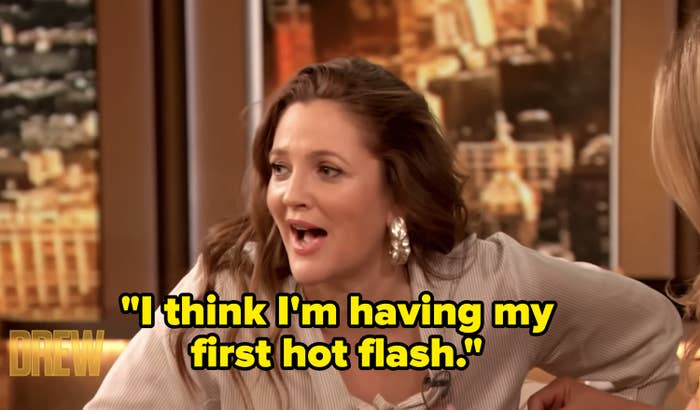
But when I talk to friends, family members, and even coworkers my age, most of us don't really know WTF is about to happen (or is maybe already happening???) in our own bodies. To learn more, I reached out to Dr. Mary Claire Haver (@drmaryclaire). She's a board-certified OBGYN and author of The Galveston Diet, which speaks to reducing the symptoms of menopause.
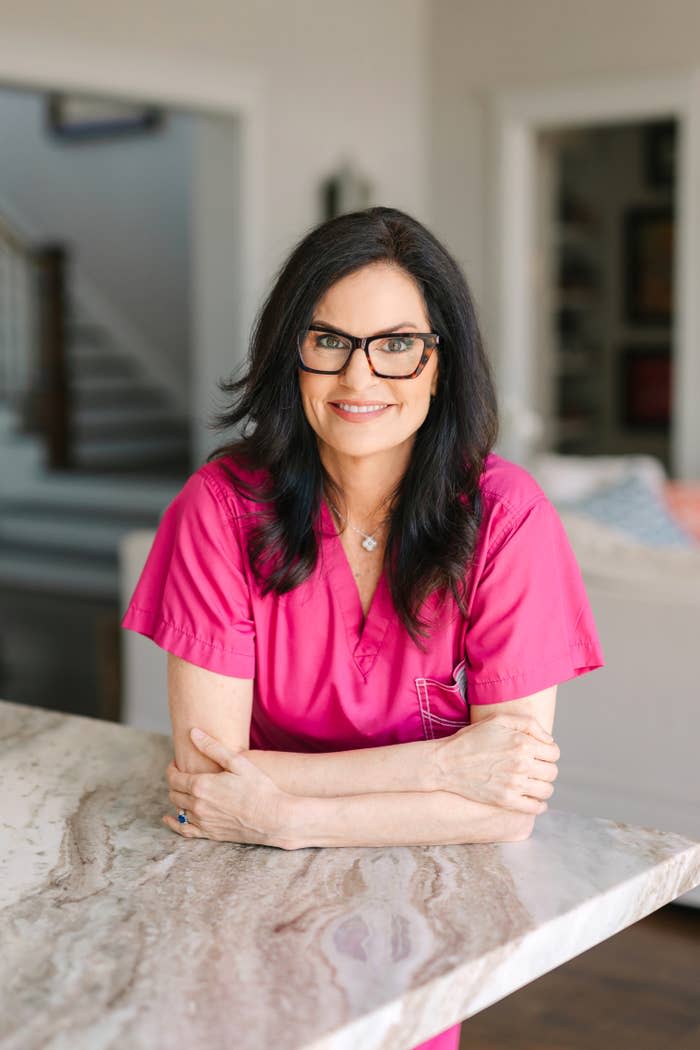
I had a really eye-opening conversation with Dr. Haver that left me feeling more prepared for entering the perimenopause to post-menopause pipeline and actually made me feel kinda hopeful about getting older. Here's what we talked about:
First of all, I had to ask, what even is perimenopause anyway? Dr. Haver explained, "Perimenopause really means 'around menopause,' to break down the Latin root, and it represents the time when you transition from normal reproductive function."
@drmaryclaire What stage of #menopause are you in? #perimenopause #menooausesupport #menopausesymptoms #menopauserelief #womenshealth #tiktokdoc
♬ About Damn Time - Lizzo
@drmaryclaire / Via tiktok.com
She went on to explain that though many people experience what we think of as menopause symptoms during perimenopause, it actually refers to the time before menopause when estrogen levels start going down. Dr. Haver said, "Clinically, we've always diagnosed [menopause] as going one year without a period, so menopause is actually one day in your life and everything after that is post-menopause." I dunno about you, but I plan on celebrating my menopause-day with a cupcake.

So, while menopause is technically just one ~special~ day in your life, perimenopause can go on for years. "Perimenopause is when you begin to notice some of the symptoms, when your body is starting to register that something's changing in your hormonal life. It can take 7 to 10 years until your period stops," Dr. Haver explained.
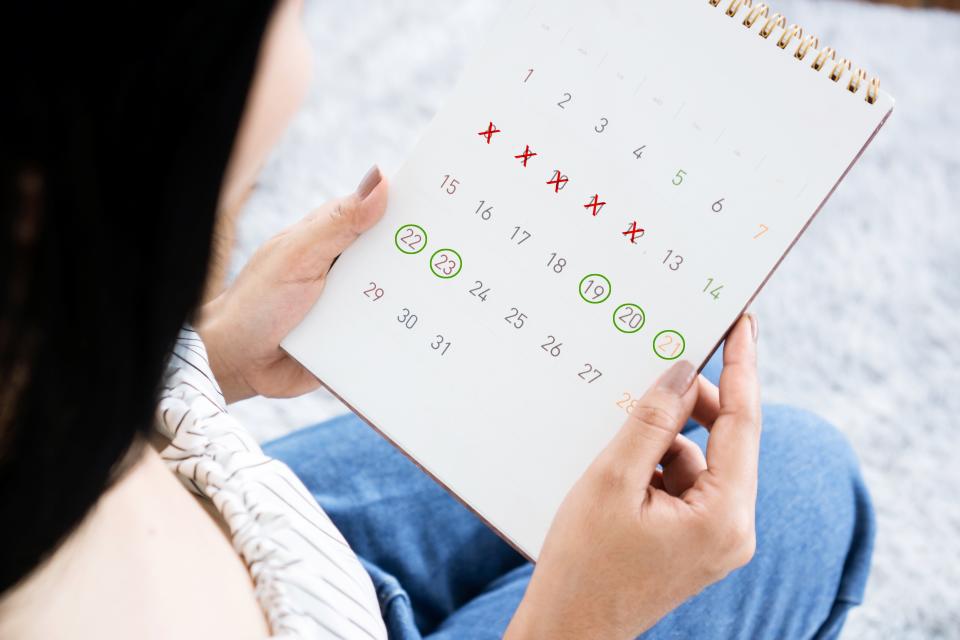
And just like we all hit puberty at slightly different ages, the timing of perimenopause and menopause can vary. Dr. Haver said, "The average age of menopause in the US is 51. But the normal curve is still around 45 to 55, so if perimenopause can begin 7 to 10 years before that, it is not unreasonable for a woman in her late 30s, definitely early 40s, to start experiencing some changes."
@drmaryclaire #onthisday love these memories!!! #menopause #perimenopause #womenover40 #womenover50 #hormones #pauselife
♬ original sound - Dr. M.C. Haver
@drmaryclaire / Via tiktok.com
So how do we know when we're in perimenopause? Getting a diagnosis, Dr. Haver explained, comes down to talking with a doctor about your symptoms. "Currently, there is not a great blood, urine, or saliva test, despite companies trying to make billions of dollars off of this stuff. So the diagnosis of perimenopause is usually made clinically. All you have to do is talk to the patient... I might do bloodwork, not for hormones, but to rule out other conditions that sometimes look like perimenopause, like an autoimmune disease or hypothyroidism. I want to make sure I'm not missing anemia or an iron deficiency if she's fatigued or tired."
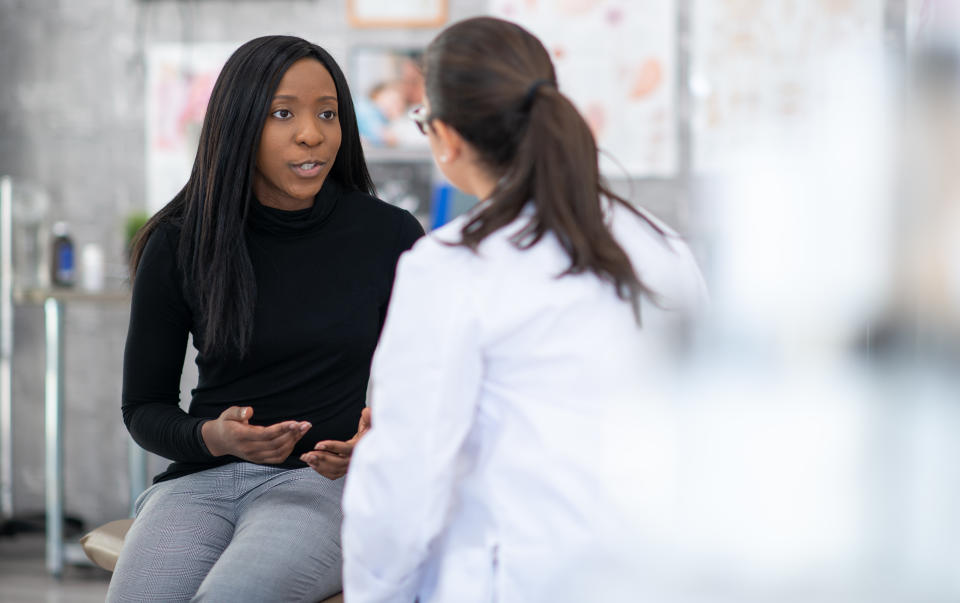
And what might those symptoms be? Buckle up, because decreased estrogen can have effects on basically your entire body. "We have symptoms that have been traditionally medically recognized as menopausal, like hot flashes, night sweats related to hot flashes, and sleep disruptions are all part of this cycle. And absolutely body composition changes, sudden gaining new fat deposits usually around the belly or intra abdominal cavity." She also said it can lead to genitourinary syndrome of menopause (GSM) which causes uncomfortable symptoms like recurrent bladder infections and vaginal dryness.
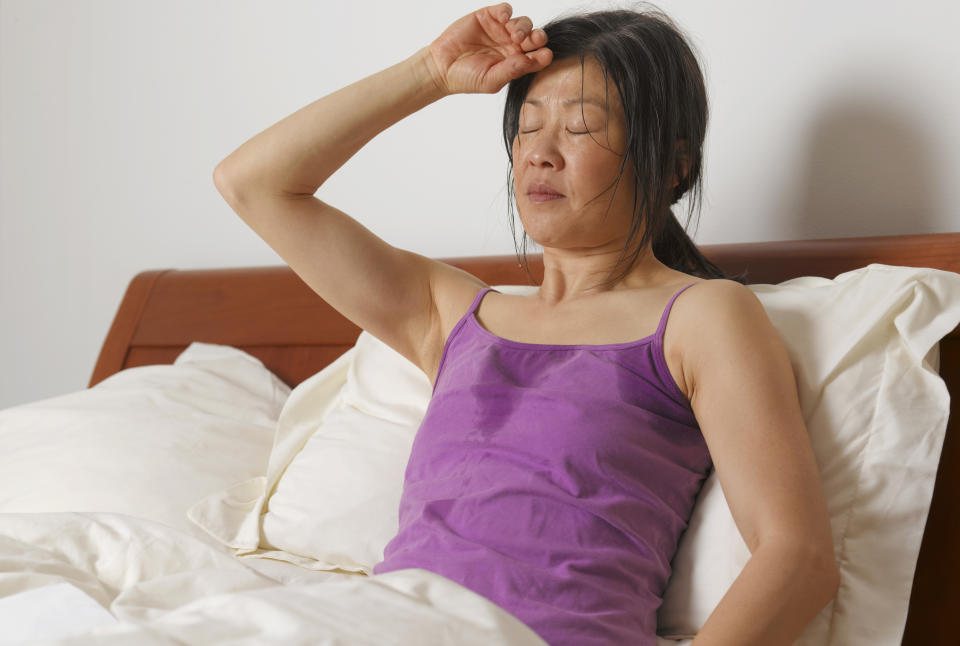
However, perimenopause can come with other symptoms that you might not expect. "But then there are the symptoms that just now the latest research and different societies are starting to recognize as menopausal symptoms, and they really were just attributed to just aging or you're getting older or you're more stressed out. And these are kind of the forefront of research right now."
Many people (and unfortunately doctors) tend to brush off these less-obvious perimenopausal symptoms. "We see increasing panic, anxiety, depression — new onset and worsening of someone who was really well controlled. Migraines and headaches tend to get a lot worse. We also start to we see a dramatic increase in asthma, autoimmune diseases, disease, lupus all start really spiking at this time of our life. Heart disease begins to accelerate, especially the younger you are when you go through menopause, the more likely you are to have an earlier heart disease or condition, such as coronary artery disease. And our gastrointestinal system completely changes. Our gut microbiome becomes like that of a man's."

But wait, there's more. "Skin Changes, hair changes, nail changes, vertigo, that's a big one. Dental changes are another huge one. There's really a lot of resources coming out about musculoskeletal joint pain and frozen shoulder."
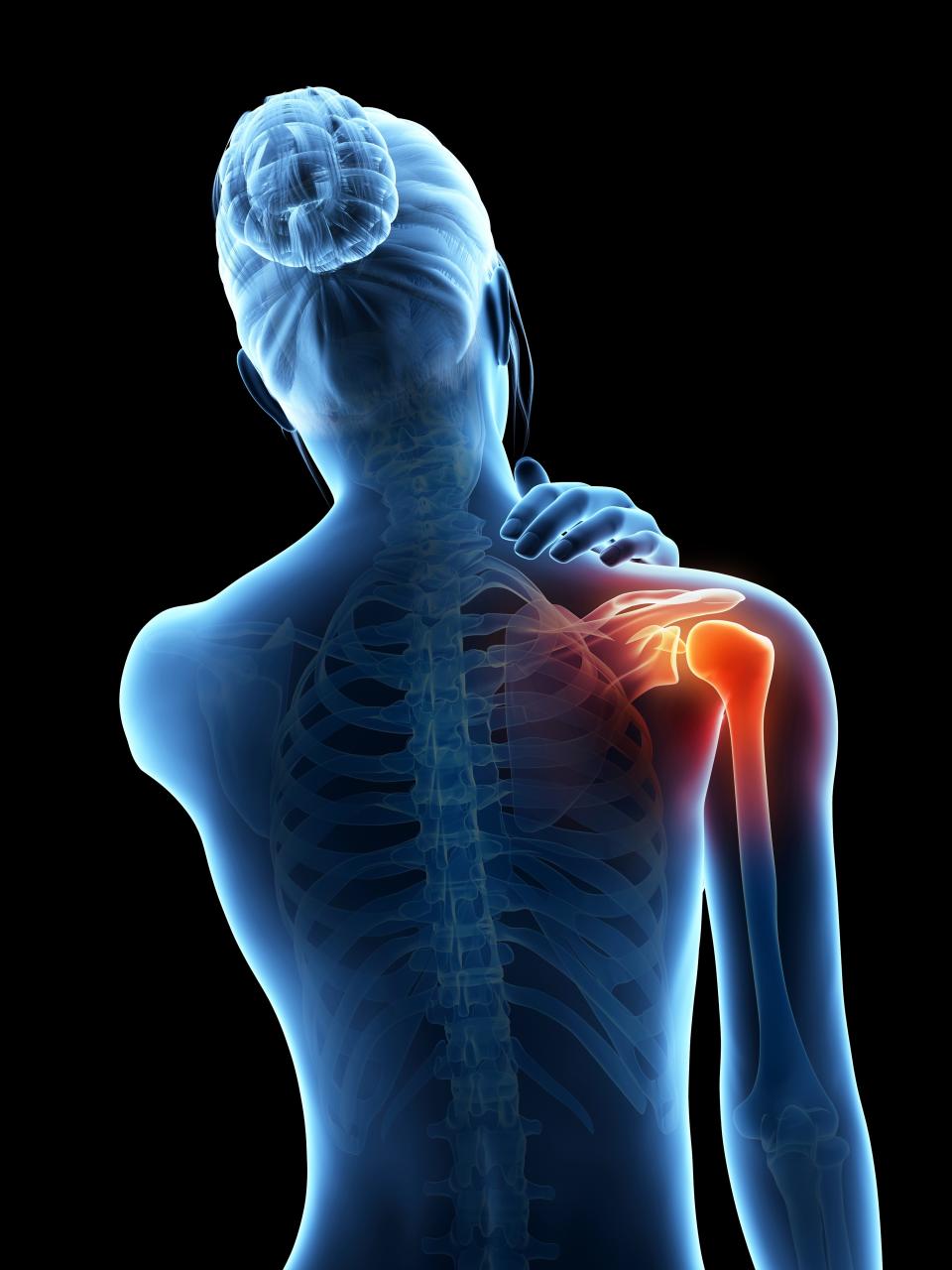
I know, I know, this sounds like A LOT. But remember, just like menstruation can come with a whole slew of symptoms for one person and have almost no effect on another, you likely won't experience each and every symptom listed above. We'll all have our own unique cocktail of perimenopausal experiences. But it's still important for all of us to know that these symptoms can be connected to perimenopause so we can better take care of ourselves when the time comes.
Unfortunately, as is the case with way too many women's health conditions, most doctors have very little training in menopause care — which can leave people going through menopause struggling and vulnerable to pseudoscience. Dr. Haver said she sees patients who have been through this ordeal before arriving in her office. "They struggle to find someone who's willing to open a conversation around treatment. And a lot of times, they end up finding stuff online or spending a lot of money on supplements that really don't have a lot of data behind the support because they're just really desperate and trying to feel better." I can't tell you how much I hate this for us.
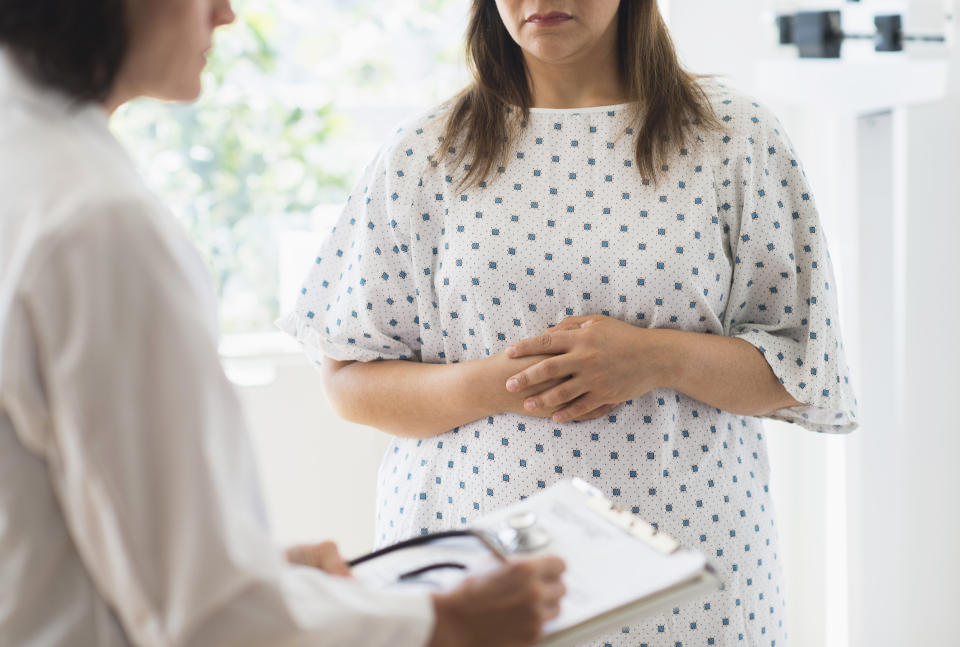
As someone who's been severely misdiagnosed in the past, I relate so hard to anyone who's hesitant to see a doctor for fear of not being taken seriously. But Dr. Haver soothed my anxiety by sharing some resources for finding more informed menopause care. "Menopause.org is really a fantastic source of information. They have tons of patient education around menopause and some of the esoteric symptoms, what you can do about it, and they have a list of providers who are certified on their website so there is a place to start to look for a provider. There's also some great telehealth options coming out. Telemedicine companies like Evernow and Midi have launched in the menopause space."

Another obstacle to menopause care comes in the form of misconceptions about hormone therapy. After the release of a flawed study in 2002, many doctors were afraid to prescribe this largely safe and effective menopause treatment. Dr. Haver said, "Basically, the message was, hormone therapy will kill you... The risks were just so overblown, but that kind of mindset got locked in. And so that generation of women have been basically denied any option for hormone therapy due to this unfounded fear." However, more recent research has shown that for most people, hormone therapy can safely provide relief.
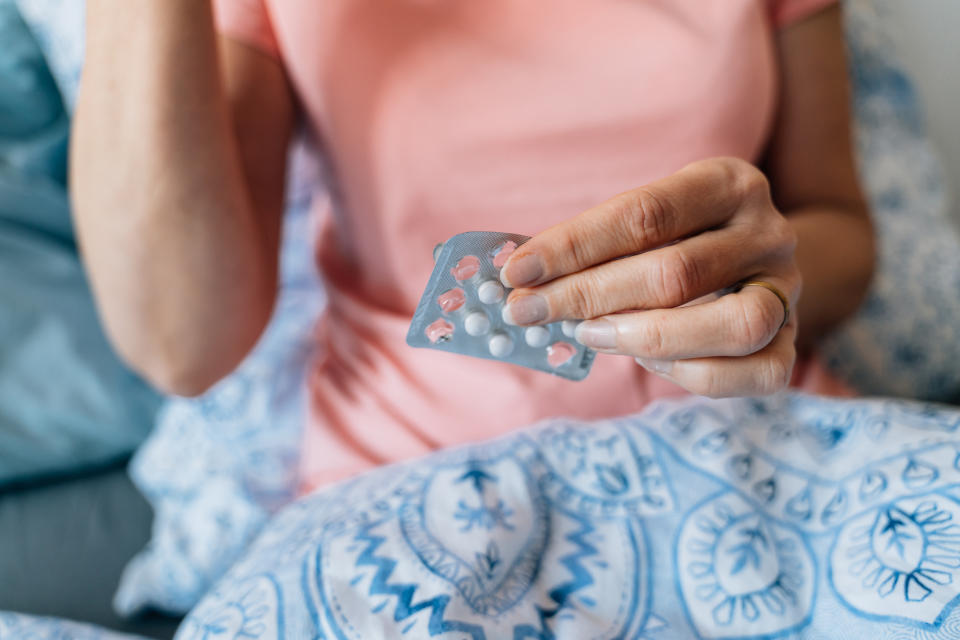
And with her own patients, Dr. Haver doesn't stop at just writing a prescription for hormones. She explained her process, which she calls "The Menopause Toolkit." "I develop a nutrition plan based on a body scan that I have in my office. I look at how much visceral fat they have around their organs. We look at calcium scores depending on their age, and I do a whole comprehensive blood panel, and then we make a plan with nutrition. I make some exercise recommendations. We discuss pharmacology, both hormonal and non-hormonal. And we also talked about possible supplementation if she's got gaps in her nutrition, stress reduction, and sleep optimization, and all of that together works to get you to your best health... I wish there was one thing, one supplement, one one tip I could give, but it's just not the way we're made as humans."
@drmaryclaire What is in your #menopause toolkit? #tiktokdoc #womenshealth #obgyn #obgyndoctor #menopause #pauselife #menopausesupport #nutrition #hormones #womenover40 #womenover50 #gynecology
♬ original sound - Dr. M.C. Haver
@drmaryclaire / Via tiktok.com
For those of us on the verge of entering perimenopause, Dr. Haver said that some preparation now can make the transition a bit easier. "How you show up in your perimenopause is going, for most of us, to dictate how well you do as far as symptoms in your menopause. So, if people can adopt an anti-inflammatory approach to nutrition, get regular exercise, cardiovascular and resistance training, strength training. And doing as much research as you can about your family history, your risk factors so that you will know if you're a candidate for hormone therapy."
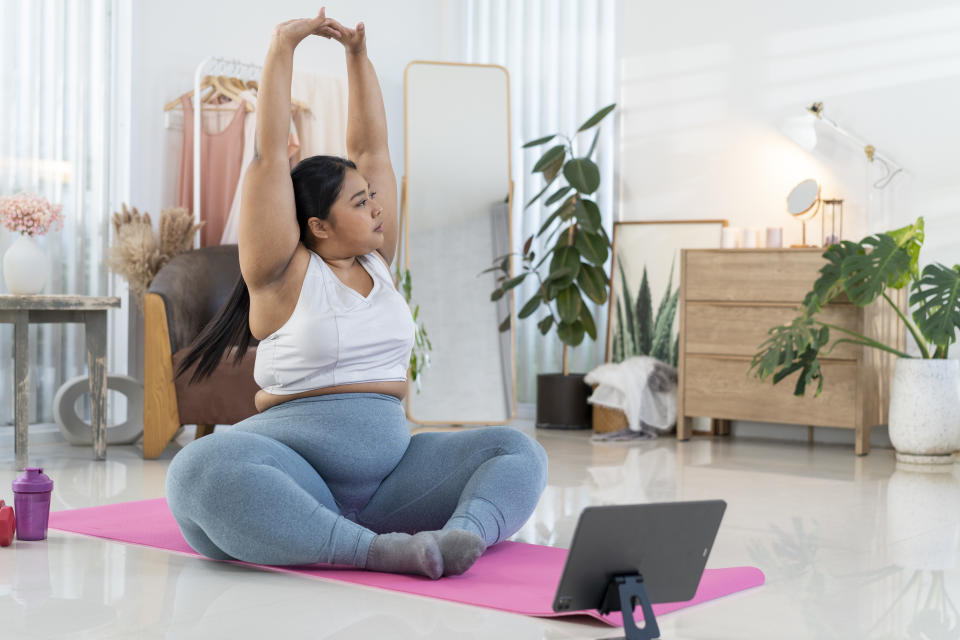
And she wants us all to know that arriving at menopause isn't the end of our fun and sexy lives. "This is not the beginning of the end, this is the beginning of a new chapter in your life. Your sex drive does not have to go down. There are things we can do proactively to protect that. Your bone density does not have to decrease. Your muscle mass does not have to decline." We can continue being our vibrant and beautiful selves as we age with the right care, and by embracing some of the positives of menopause.

Dr. Haver continued, saying, "What I love is that, for a lot of us, perimenopause begins a time when we learn how to put up boundaries. We learn how to protect ourselves first. We learn how to put our own health needs and priorities first so that we can be better caretakers to loved ones. That's one of the, like, gifts of perimenopause and menopause is you realize I can't just keep going at this pace. I can't keep putting everyone's needs before myself."
And she has a message for anyone who's feeling nervous about this transition. "Don't be scared. It's like reverse puberty. It's happening, and you can't get out of it. If you live long enough, it is going to happen. It can be the beginning of some increasing risks, but it doesn't have to be. And so, preparing yourself, educating yourself, being aware, and knowing where you're going to go for help, is going to be key."

Finally, she said that though talking more about perimenopause and menopause is great, we need to see more research and medical education to ensure that people don't continue to suffer unnecessarily from a condition that, if it happened to men, would almost certainly be well-treated by now. "There's, like, 1.4 million medical journal research articles on PubMed that have been written about pregnancy and then you type in the word menopause, and it's 94,000. More women will go through menopause than have a baby. We could probably intervene and improve their longevity and quality of life just as much. And it just gets a fraction of training, research, and all that, so I'd like to see that start to change."
After I talked with Dr. Haver, I came away with a totally different understanding of perimenopause and the changes that follow it. Sure, some of the symptoms sound scary, but it was so reassuring to hear that it's not all doom and gloom. And even though our culture mostly treats menopause as a punchline, a way to make older women feel small by laughing at their pain, I hope that as we keep talking about it more and more, this pejorative view will change. After all, every older woman that I love and respect from my mom and my grandma to the great Dolly Parton herself has gone through it, and it didn't make them any less lovable, strong, smart, or beautiful. I'll be proud to join them someday in menopause-land and to stop buying tampons forever.



